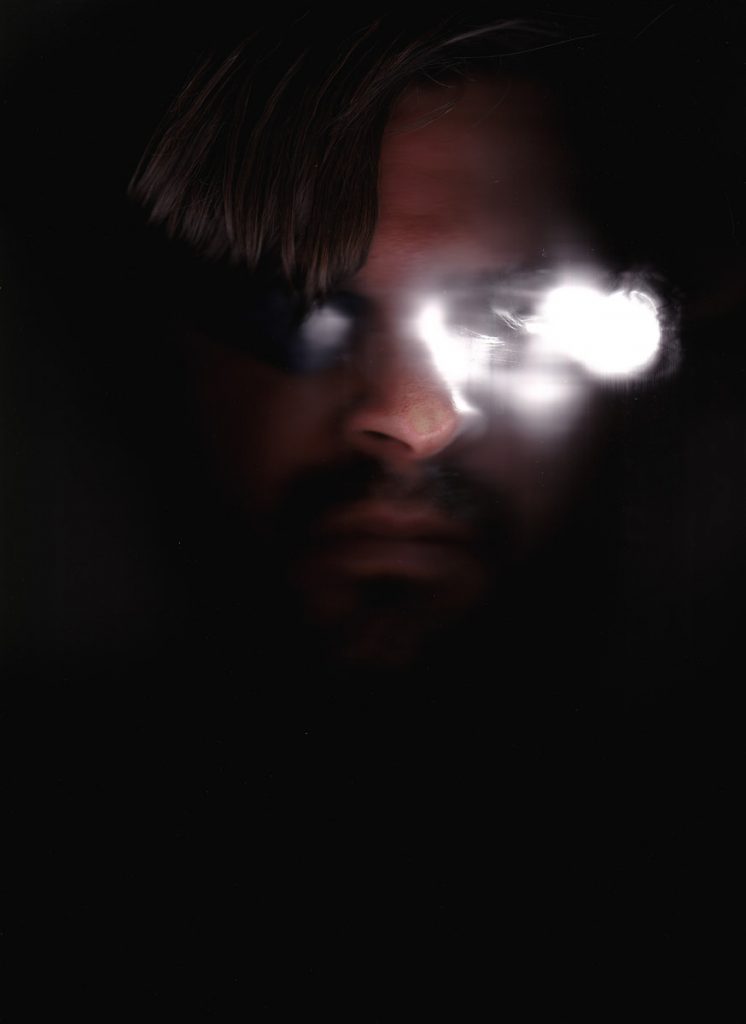
The last time I talked with Andrew Becker about his musical project Human Potential, it was 2014. Human Potential’s debut, Heartbreak Record, had just been released, and its off-kilter approach to pop (with an edginess that hearkened back to Becker’s time in bands like Medications) was deeply compelling. Now it’s three years later, and Human Potential’s third album, Hot Gun Western City, has recently entered the world. This album finds Becker’s range expanding considerably, from the Stars of the Lid-esque “Guilder” to to the ethereal sounds of “Majestic Park Training” to the mutant pop of opener “Apparitioning.” I caught up with Becker to talk about the new album, the evolution of Human Potential’s sound, and more.
The album opens with a very archetypal-sounding drumbeat. How did “Apparitioning” get to be side one, track one?
I would say most, if not all, Human Potential songs have germinated from a guitar or synthesizer/keyboard part…with drums usually entering the equation after the song has been structured out. “Apparitioning” was a very conscious attempt to invert this process. Basically, I wanted to write a song using percussion as the primary structural component of the piece. Utilizing an archetypal-sounding beat was intentional and necessary for what I had in mind…which was to layer auxiliary percussion parts over a simple rhythm…bits and pieces of rhythmic noise that would complement and color a fairly simple beat. My primary inspiration for the foundational drum part were songs like Bowie’s “Modern Love”, The Fall’s “Oh, Brother” and probably, more than anything, “Yü-Gung” by Einstürzende Neubauten. This was my attempt to transpose a Neubauten concept into a pop song format.
Sequencing this record was a particular challenge considering the stylistic disparity over the course of the album. But, given the fast BPM and lurching energy of “Apparitioning”, it just made sense to me that it would be the lead-off track.
Quite a few of the songs on your new album have titles that reference places, including the title track and “Notes From the Moon Factory Parking Lot.” Did you have an entire landscape in mind as you started to put the record together?
The lyric writing process, for me, always begins by envisioning a physical landscape…a world in which a character will inhabit, followed by details of that space. Invariably, the tone of the music dictates the visual tableau of these environments. Once I conceptualize what this place looks like, I can begin fleshing out a character…who lives in this space, what are they doing there…and why? Then, once I have an idea of who the character is, I can start take on their point of view and begin writing a journal of sorts. For, “Notes From the Moon Factory Parking Lot”, I envisioned a busy quasi-suburban thoroughfare, similar to places I grew up around, in Delaware. Then, I started thinking…well, what’s around there? Fast food restaurants…aquarium stores…and churches. From there, I just started to conceive of a guy sitting in his car in a parking lot looking at a digital church marquee across the street, as it shuffles through sundry quotes and phrases one would typically see on signs like that. Then, why’s he parked there specifically? Well, maybe he’s having an affair and, subsequently a crisis of conscience as he tries to reconcile his actions with his pious background. As the song ends, the marquee sort of poses a poignant question…”We’ll be in heaven, will you?” It seemed like the final scene in a film, which, I suppose, is the way I generally visualize the songs. Basically, I approach them like small vignettes comprising a bigger whole…but, on this record, there’s no real binding theme from song to song, per se.
Vocally, you seem to be using a different range here than on, say, Heartbreak Record. What prompted the change?
Heartbreak Record was the sound of me, very literally, finding [my] voice. I had never sang before in my entire life. Being that I despise the sound of my natural voice, I tried find a space, vocally, in which I didn’t sound like myself. But, the falsetto that I used on Heartbreak Record was pushing the limits of my already melodically questionable voice, at times. So, to make it easier on myself, I began using more of my natural range on my second record and settled into it more on the new one. Stlll, vocals for me continue to be sort of an ongoing experiment.
“Guilder” heads into a decidedly ambient place. Where did the impetus come from to end the album with this particular texture? What was the process like for putting that particular song together?
My goal in writing “Guilder” was to create something that was at once imposing and monolithic, but also had an ethereal, delicate quality about it. I built the song around one, very heavily processed guitar line that I then looped to form a soundbed. From that foundation, I just began layering other guitar phrases over top…different melodies and harmonies that could emerge at various points in the song, until I felt like the song had reached a satisfying emotional conclusion.
The impetus behind creating this kind of piece is similar to what compelled me to write many of the other songs on this album. Simply put…a general malaise regarding what I’ve done in the past, perpetual restlessness, and an extreme eagerness to explore entirely new sonic territories.
Follow Vol. 1 Brooklyn on Twitter and Facebook, and sign up for our mailing list.
